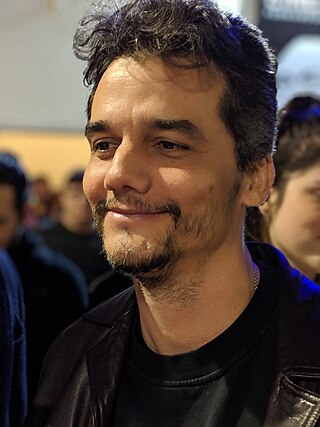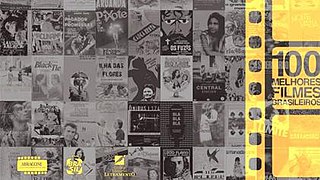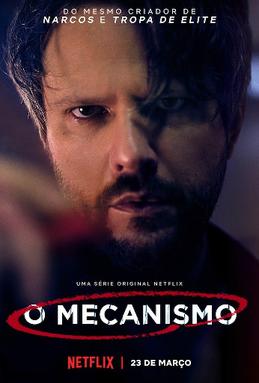Related Research Articles

City of God is a 2002 Brazilian epic crime film directed by Fernando Meirelles. Bráulio Mantovani's script is adapted from the 1997 novel written by Paulo Lins, but the plot is also loosely based on real events. It depicts the growth of organized crime in the Cidade de Deus suburb of Rio de Janeiro, between the end of the 1960s and the beginning of the 1980s, with the film's closure depicting the war between the drug dealer Li'l Zé and vigilante-turned-criminal Knockout Ned. The tagline is "If you run, the beast catches you; if you stay, the beast eats you."

Fernando Ferreira Meirelles is a Brazilian film director, producer, and screenwriter. He is best known for co-directing the film City of God, released in 2002 in Brazil and in 2003 in the U.S. by Miramax Films, which received international critical acclaim. For his work in the film, he was nominated for an Academy Award for Best Director. He was also nominated for a Golden Globe Award for Best Director in 2005 for The Constant Gardener, which garnered the Academy Award for Best Supporting Actress for Rachel Weisz. He also directed the 2008 adaptation of José Saramago's novel Blindness, and the 2011 film 360. In 2019, Meirelles directed The Two Popes for Netflix.
Latin American cinema refers collectively to the film output and film industries of Latin America. Latin American film is both rich and diverse, but the main centers of production have been Argentina, Brazil and Mexico. Latin American cinema flourished after the introduction of sound, which added a linguistic barrier to the export of Hollywood film south of the border.

Wagner Maniçoba de Moura is a Brazilian actor, director and filmmaker. Wagner started his career doing theater in Salvador, where he worked with renowned directors, and soon scored some appearances in films. In 2003, he got his first leading roles in movies, in addition to having a prominent role in Carandiru, which propelled him to the main scene of Brazilian cinema. He continued starring in national feature films, including the box office hits Elite Squad and Elite Squad 2, playing the famous character Captain Nascimento. The first film received the Golden Bear award and both productions reverberated outside Brazil, which boosted the actor's international recognition.
Bráulio Mantovani is a Brazilian screenwriter and author.
Jonathan Haagensen Cerqueira is a Brazilian actor, model, and singer.

The 58th annual Berlin International Film Festival was held from February 7 to February 17, 2008. The festival opened with Martin Scorsese's documentary film Shine a Light. Be Kind Rewind by Michel Gondry served as the closing film. Greek filmmaker Costa Gavras, was selected to serve as the Jury President for the main competition.
Fabio Góes is a Brazilian singer, songwriter and musician. He released his first album Sol no Escuro in 2007. The album appeared in the top 15 best albums of the year in Rolling Stone magazine. The critic Pedro Alexandre Sanches, from Carta Capital, highlighted "the inspiration, the swing, subtlety and care" of Góes; Ricardo Alexandre – in one of the last editions of Bizz magazine – gave five stars to the album for its "detailing, care, sophistication and maturity."

Miguel Gonçalves Mendes is a Portuguese film director, screenwriter and producer. He is the author of José and Pilar (2010), a documentary about writer and Nobel Prize winner José Saramago, co-produced by Pedro Almodóvar and his brother Agustín, and Fernando Meirelles. In 2011, after a successful international festival circuit, the movie spurred an unprecedented popular movement in Portugal resulting on a petition signed by 1400 people, which in turn sparked a debate over Portuguese cinema and a campaign for the Oscar nominations in Los Angeles and New York. Currently, Miguel is at the post-production stage of his new documentary, The Meaning of Life, produced by Fernando Meirelles, which has been dealing with issues to raise finishing funds.
Lula Carvalho, ASC is a Brazilian cinematographer.

Something in the Air is a 2002 Brazilian drama film directed by Helvécio Ratton. It is based on the actual history about Rádio Favela, a community radio broadcaster established in Aglomerado da Serra, a favela of Belo Horizonte in the 1980s. It shows how it was persecuted by the police while four friends try to keep the radio. Alexandre Moreno, Adolfo Moura, Babu Santana and Benjamim Abras were chosen to star the film after 3,000 people tried for their roles. It was shot in Aglomerado da Serra and used about 300 of the local people as extras.

Events in the year 1951 in Brazil.

In 2015, the Brazilian Film Critics Association (Abraccine) published a list with the 100 best Brazilian films ever according to the votes of its members. This poll was the basis for a book named The 100 Best Brazilian Films, published in 2016. The idea of the ranking and the book was suggested by publisher Letramento, with whom Abraccine and television network Canal Brasil co-released the book. The ranking was done based on individual lists done by Abraccine's 100 critics, who initially mentioned 379 films. The full list was first made available to the public on 26 November 2015, and the book was released on 1 September 2016.
Cavalo de Aço is a Brazilian telenovela produced and broadcast by TV Globo. It premiered on 24 January 1973 and ended on 21 August 1973, with a total of 179 episodes in Black and white. It is the twelfth "novela das oito" to be aired on the timeslot. It was created and written by Walter Negrão and directed by Walter Avancini, David Grimberg and Daniel Filho.
O Semideus is a Brazilian telenovela produced and broadcast by TV Globo. It premiered on 22 August 1973 and ended on 7 May 1974, with a total of 221 episodes in Black and white. It's the thirteenth "novela das oito" to be aired on the timeslot. It is created and written by Janete Clair and directed by Walter Avancini and Daniel Filho.
O Casarão is a Brazilian telenovela produced and broadcast by TV Globo. It premiered on 7 June 1976 and ended on 10 December 1976, with a total of 168 episodes. It's the seventeenth "novela das oito" to be aired on the timeslot. It is created and written by Lauro César Muniz and directed by Daniel Filho and Jardel Mello.

O Mecanismo is a Brazilian political drama television series created by José Padilha and Elena Soarez, directed by Padilha, Felipe Prado, and Marcos Prado, and written by Elena Soarez. The show depicts Operation Car Wash, an ongoing police taskforce that discovered a widespread corruption scheme involving the Brazilian government and several prominent engineering firms. The series premiered all episodes of the first season March 23, 2018, worldwide, on Netflix.

Bingo: The King of the Mornings is a 2017 Brazilian biographical drama film directed by Academy Awards nominee Daniel Rezende in his directorial debut. Written by Luiz Bolognesi, the screenplay is inspired in the life of Arlindo Barreto, one of many actors who played Bozo the Clown in Brazil. However, to avoid copyrights claim and preserve its creative freedom, the production does not use either the name of Bozo or Arlindo, adopting the fictional names of Bingo and Augusto, respectively.
References
- ↑ "The 75 Best Edited Films". Editors Guild Magazine. 1 (3). May 2012. Archived from the original on 2015-03-17.
- ↑ "Daniel Rezende on City of God", webpage from the Film4 website; retrieved June 11, 2008.
- ↑ "'Bingo – O rei das manhãs' recria a vida 'mucho loca' do ator por trás do Bozo", webpage from the Brazilian newspaper O Globo; retrieved August 27, 2017.